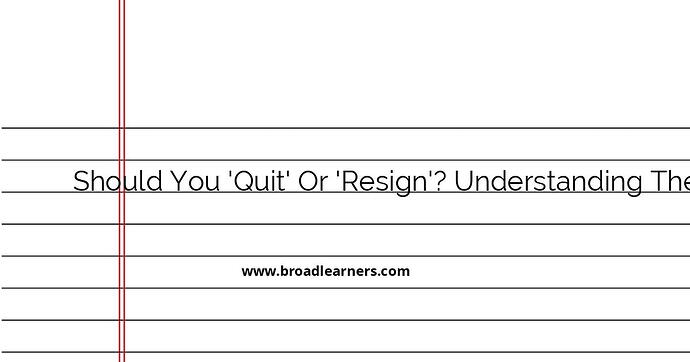Understanding when to use 'quit' and when to use 'resign' is crucial in professional settings. Both terms indicate a departure from a job or position, but they carry different connotations and are used in different contexts.
1. Quit
'Quit' is a more informal term used to indicate leaving a job abruptly or without much notice. It often implies a sudden or impulsive decision on the part of the employee. 'Quit' is commonly used in situations where the departure is not planned or discussed with the employer in advance.
Example:
After a heated argument with his boss, John decided to quit his job on the spot.
2. Resign
'Resign' is a formal term used to indicate leaving a job in a structured and professional manner. When an individual resigns, it implies that they have given proper notice to their employer and have followed the protocols set by the organization or outlined in their employment contract.
Example:
After much consideration, Sarah decided to resign from her position and gave her employer a two-week notice.
Main Differences:
- 1. Formality:
- 'Resign' is more formal and professional, while 'quit' is informal and sometimes perceived as impolite.
- 2. Notice:
- Resigning usually involves giving a notice period, whereas quitting can be immediate without prior warning.
- 3. Implications:
- Resigning suggests a planned and thoughtful departure, while quitting may indicate a sudden decision without much consideration.
- 4. Perception:
- Resigning is generally viewed more positively by employers and future potential employers, while quitting may raise red flags regarding professionalism and commitment.
Therefore, when deciding whether to 'quit' or 'resign,' it is essential to consider the circumstances of your departure and the image you want to convey to your current and future employers.
Did I miss anything? Respond below
